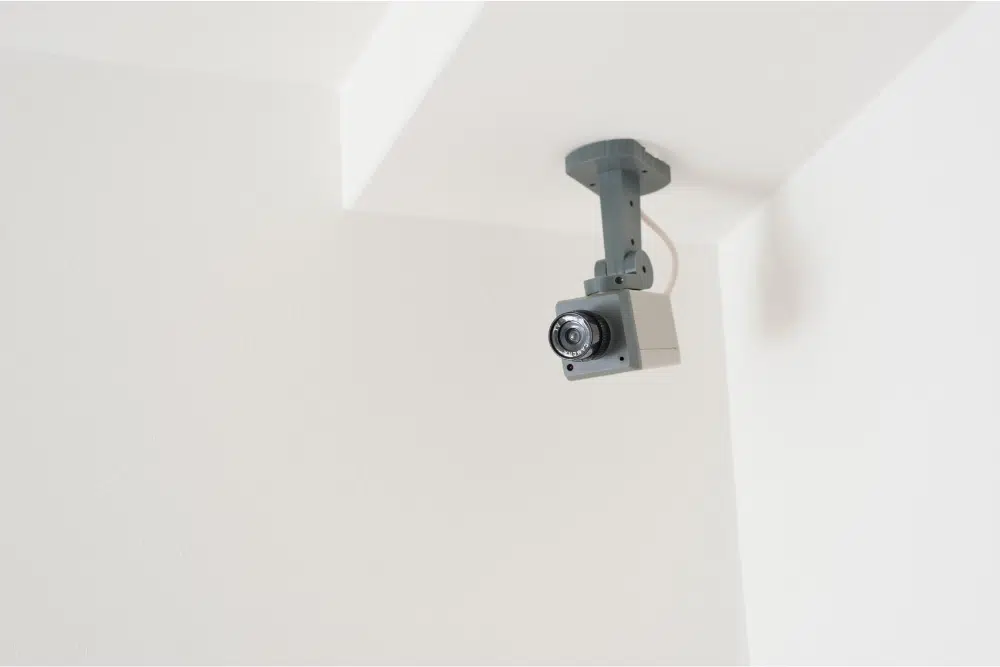
Content Reviewed by:
Steven M Levin
Content Reviewed by: Steven M Levin
Since 1976, Steve Levin has been dedicated to helping people injured by others’ negligence. He is one of the first attorneys in the U.S. to prosecute nursing homes for abuse and negligence. He’s also helped write new legislation that governs the operation of nursing homes, including the Illinois Nursing Home Care Act. Moreover, Levin & Perconti has obtained the top three jury verdicts in nursing home negligence cases in Illinois.
The daughter of a 92 year old nursing home resident with an unexplained black eye and fractured vertebra in Slidell, Louisiana is suing the facility for the right to use a video camera to monitor her mother’s room. In May of this year, the daughter of 92 year old Ann Graff went to visit her mother as she did nearly every day, only to find her in bed complaining of back pain and displaying a black eye. Daughter Lucie Titus says her mother suffers from severe dementia and neither she nor the staff at Heritage Manor of Slidell could explain when or how the injuries occurred. Nursing staff also told Ms. Titus that they weren’t aware of her mother’s injuries until she brought them to their attention.
The attorneys for Ms. Titus and her mother stated in a lawsuit that the staff’s unwillingness to cooperate or their act of being unaware of the injuries concerned Ms. Titus so badly that she cannot stop thinking about the quality of care her mother is receiving. The lawsuit’s main request is to install a camera in Ms. Graff’s room, focused on her bed, to remotely monitor the activities and care taking place in her room. Video recording in nursing homes is currently illegal in Louisiana. Borrowing aspects of the law drawn from other states who allow video recording in nursing homes, Ms. Titus’ request states that she would get express permission from her mother’s roommate, that she would post signs outside her mother’s room that video recording was in progress, that the video camera would not have sound recording enabled, and that she would assume all costs associated with installing the camera and monitoring the video footage.
Current Illinois Law on Video Cameras in Nursing Home Rooms
In 2015, Governor Bruce Rauner signed a law permitting the use of video recording devices in resident rooms in nursing homes. The law, which officially took effect on January 1, 2016, has 4 main provisions:
- The camera must be visible to anyone entering the room
- Signs must be posted outside the resident’s room to notify visitors and staff that video recording is in progress
- A resident’s roommate, if applicable, must sign an Illinois Department of Health consent form that expressly agrees to allow video and sound recording (roommates have the option to object to the use of video and sound). This form also contains options for certain periods of time in which a roommate requires the camera be turned off.
- The resident and/or representative assumes all costs for installation, operation, and connectivity relating to the video camera
The Benefits of Video Recording in Nursing Home Rooms
We’re living in a world where every move we make feels as if there’s footage to document it. Security cameras are on every corner, our faces are on camera as we order at the counter of a fast food restaurant, when we run a red light, and as we walk through hallways of office buildings and shopping malls. While these may sometimes feel like an intrusion, the first though most of us have when a tragedy occurs without witnesses is “hopefully there was a security camera that caught it.” Choosing a place that will care for your loved one is one of the biggest decisions many will face in their lifetime. When trust is broken, even due to suspicions, and a resident is physically, emotionally, sexually abused or their well-being is neglected, loved ones are often scared to ask tough questions.
Illinois law allowing cameras in nursing home rooms is an enormous benefit to all nursing home residents. When an employee knows that every move is being watched, the motivation to provide the best, most loving care possible is higher. The hope is that all loved ones will be able to rest easy being able to see that their loved one is being properly cared for.
In the unfortunate event that the footage shows abuse or neglect, a video camera can provide invaluable evidence in a lawsuit against a nursing home. Should you choose to enable a video recording device in a loved one’s room, we encourage you to follow the law explicitly so as to avoid the potential for having the footage inadmissible in a court of law. Failing to post notification signs, to post the camera in a noticeable place, to obtain the proper IDPH consent of a roommate and not adhering to the requirements as stated by the roommate in the consent form could cause the recording(s) to be unusable as evidence.



